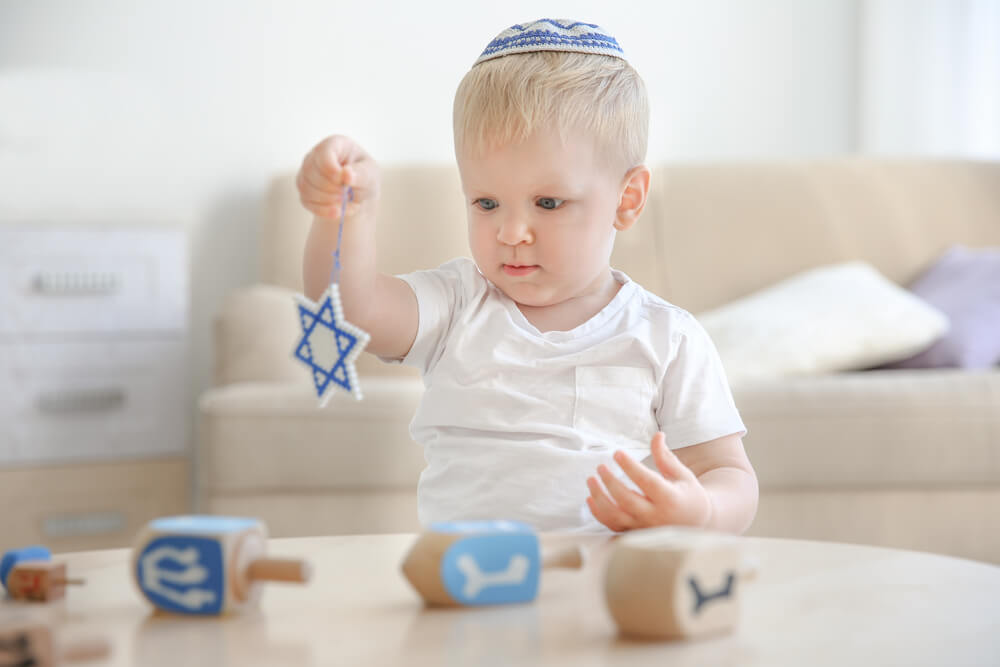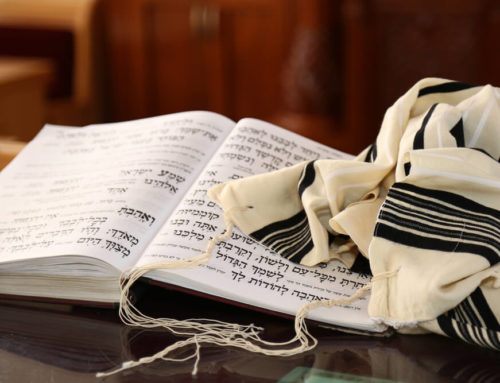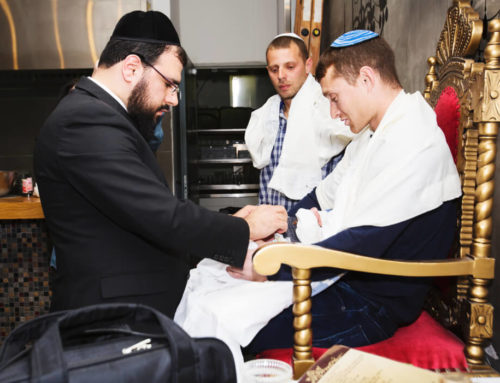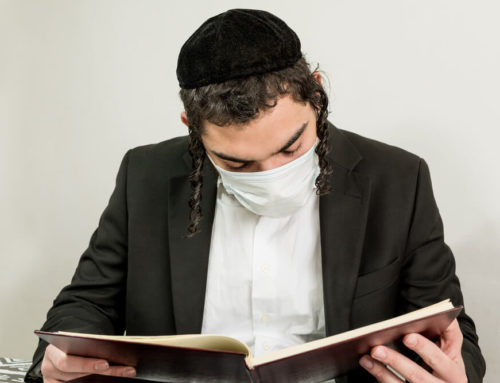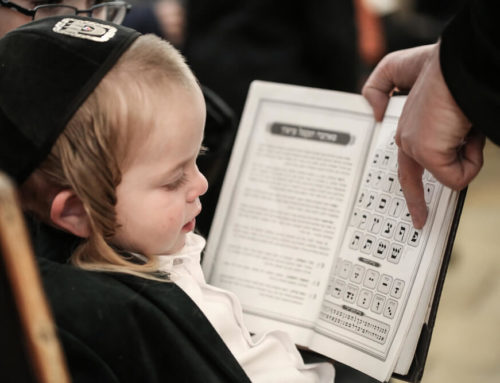For a Jewish mother-to-be, finding out that her baby is a boy can be a bit of a bittersweet experience. Rooted deep in Jewish tradition, the brit milah, or simply bris (the ceremony of infant circumcision), is a very personal decision that you and your family will either choose to make or not. And if you do decide to have a traditional infant circumcision, there are several things you want to consider to prepare for the big day properly.
Because it’s pretty easy to get overwhelmed with all the preparations and considerations, you should start right away with the most critical part: book your bris in South Florida today, and let Dr. Krinsky help you with all the necessary preparations so the entire ceremony goes smoothly, and joyfully – as it should.
So, without further ado, here are some tips to prepare for one of the essential Jewish traditions, the brit milah.
Plan Ahead
The more you get done before the baby arrives, the easier it will be for you and your family. This is especially true if you already know the baby’s gender. Contact the mohel, the rabbi, your family, look for catering options, etc. Also, chances are, you will be exhausted after giving birth, so make sure to involve the father as well – both in the planning process and, later, after the baby arrives.
Also, while this isn’t a part of Jewish traditions, you should consider what to wear. It’s only been a bit more than a week since you’ve given birth, and you should wear something comfortable, clean, and easy for nursing if you are a nursing mom.
That said, avoid trying to squeeze into your pre-pregnancy pieces, as the clothing might stress you unnecessarily. Don’t worry – you will be celebrating the sacred day when your son has joined the Jewish community. Everyone will think that you are glowing.
Think About Food
Food is almost always involved, no matter which Jewish tradition we discuss. To that end, nobody expects you to prepare everything yourself. Leave these preparations for family and friends, or find a catering service that can meet every dietary need (like serving only kosher food).
Learn About the Ceremony and Its Requirements
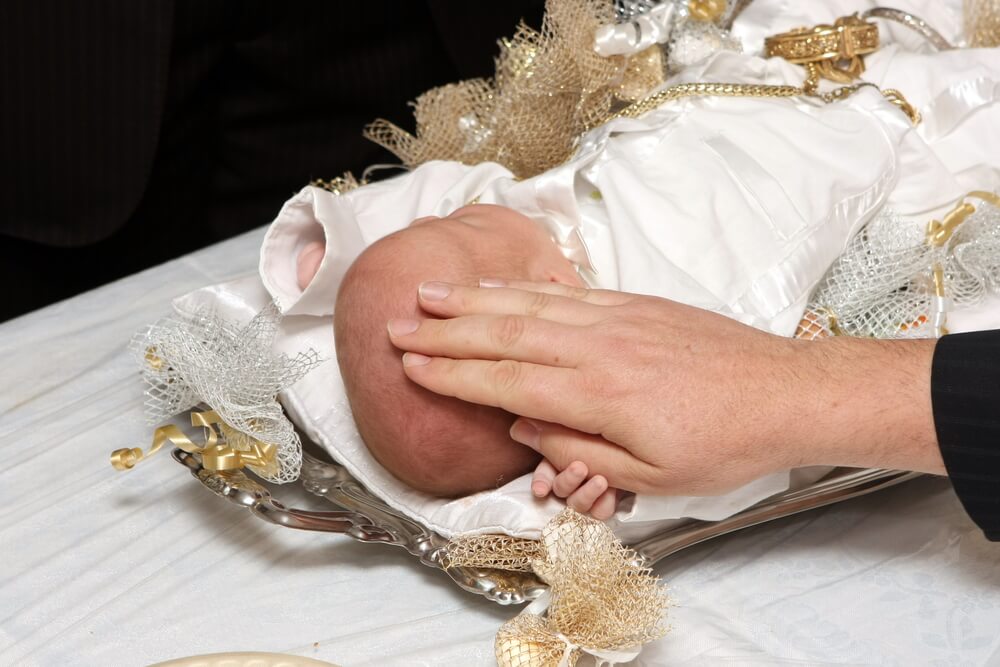
This is also something you’ll want to take care of in advance. When talking about infant circumcision, things like the tallis and the kiddush cup are all necessary items. The tallis (or tallit) is a prayer shawl that will probably be worn by the Sandak, the one who holds the child during the circumcision.
Make sure that you have both the kiddush cup and the tallis ready even before your baby son is born. Things can get really hectic after giving birth, and the last thing you want to think about is acquiring these items.
Also, make sure that you delegate the honors before your baby boy arrives. You need to choose a kvatter who will bring your baby into the ceremony. You will also need a Sandak, who will hold the baby during the circumcision and, later, during the naming of your boy.
Talk With the Mohel
To ensure that the ceremony goes smoothly and without mishaps, your best bet is to sit down with the mohel and find the best touch for the ceremony. This can involve everything from the ceremony’s location to the honors you give out, the receipted blessings, and even the naming process.
Ceremony Checklist
Create a comprehensive checklist before the ceremony to avoid unpleasant surprises on the big day.
That said, make sure that:
- The baby’s last feeding is at least half an hour before the bris
- If you are breastfeeding, avoid taking blood thinners at least two days before the bris
- Bring several diapers and baby wipes
- Bring a receiving blanket
- Bring a pacifier
- Pacifier and bottle
- Tallis Kippot for the guests
- Kiddush cup
- Kosher wine (unopened bottle)
- A firm, white pillow
- A small table
- A chair
- A candle
Delegate Other Roles Too
Friends and family will probably be eager to help, so involve them in the process. Create a task list where everything is assigned to a specific person. For instance, have someone remember to bring the checkbook for the expenses. Ensure that someone checks the venue before leaving to see if everything’s in the same shape as when you arrived. They may also be responsible for bringing back the necessary ritual items with you.
And if the bris is celebrated at your home, having a few of your friends or family members is always a good idea to help clean up.
Arrive on Time
If you aren’t having the ceremony at your home, arriving a bit early can be a great way to familiarize yourself with the space and make some last-minute arrangements if needed. Remember, it’s better to play it safe and prepare for everything.
Be Gentle on the Infant and Yourself
First, know your limits. You’ve just given birth, so chances are, you will still be somewhat exhausted, not just from delivery but from the entire process of pregnancy. Also, your baby will probably cry during infant circumcision. This can trigger a myriad of postpartum emotions in mothers. Crying and feeling empathy for your little boy is okay. Still, don’t forget that this process is essential to becoming a part of the Jewish community.
On the other hand, you want to make sure that your little boy is calm before the ceremony. Ensure that he has enough milk or formula so he doesn’t become restless during the big moment. Right after the bris, the guests will probably want to meet the newest little member of the community, but for post-operative and emotional reasons, it might not be the right idea. Some experts actually recommend retreating right after the bris to hold and feed your baby.
Remember, the brit milah is an important, joyful day for both of you, but it can also be a stressful experience. Make sure you and your son can find peace and quiet during the big day if needed.
Ask Away
Don’t shy away from asking questions before and after the ceremony. Your boy may sleep a lot following the bris, and you will want to know what to look out for in the following days. Circumcisions are safe, but it’s also crucial to check with your mohel or pediatrician for any questions.
Also, if you have any questions or concerns before the ceremony, feel free to contact the mohel or rabbi. They will be more than happy and ready to help you out.
Don’t Forget About Aftercare

A bris is a sacred ceremony and a surgical procedure as well. This means that proper aftercare will also be crucial. Fortunately, it’s really simple. For all diaper changes during the first 24 after the procedure, parents will also apply 4×4 gauze pads with ointment over the surgical site. After that, parents will bathe the baby for 14 days, which should be pretty much it.
And while the aftercare is lengthy, the area will need a bit more time to heal. More specifically, it will take around two to three weeks for the skin the return to its original color. If there’s any discoloration or swelling after the first ten days, it’s worth checking with the mohel or pediatrician to see whether everything’s okay.
Prepare With Joy
Without a doubt, preparing for a bris can be a bit overwhelming, and the nature of the ceremony might evoke feelings of unease in some parents. Still, with an experienced and compassionate mohel by your side, there will be no problems.
That said, feel free to contact Dr. Krinsky today.



